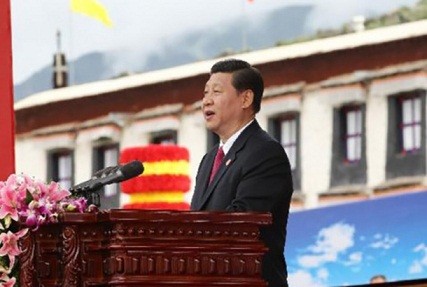The Chinese central government has expressed objection to the “Middle Way” proposed by the Dalai Lama group, according to an article released in China’s United Front.
The People's Daily Online reported that the article was posted after the government ended its sixth working conference on Tibet on Tuesday, Aug. 25.
The conference discussed long-term plans that the government wants to implement to bring stability in the region. During the conference, President Xi Jinping also urged for national and ethnic unity as he vowed to fight separatism.
"The Central Government did not in the past, nor is now and will not in the future, accept the Middle Way solution to the Tibet issue," reads the article.
The article said that the main intention of the Middle Way is to split China, as "the Dalai group refused to recognize China's sovereignty in Tibet and wants to seize control of power and to establish a semi-independent political regime."
According to the article, China objects to the Dalai Lama's proposal for a "high degree of autonomy" in Tibet, since "the essence of 'a high degree of autonomy' for the group means setting up 'a state within a state,' free of control from the central government."
Tibet has been of great importance to the central government, holding at least six working conferences on Tibet since 1980. It held the second conference in 1984, the third one in 1994, the fifth one in 2010 and the sixth conference, which ended on Aug. 25.
Each working conference on Tibet dealt with specific measures to push forward the region's economic development and secure social stability.
The article said that the government is promoting "political unity and respecting religious belief," as it is against intervening and suppressing Tibetans' religious freedom.



























